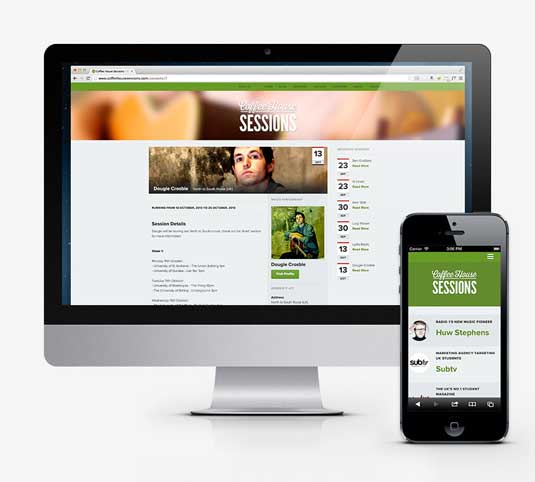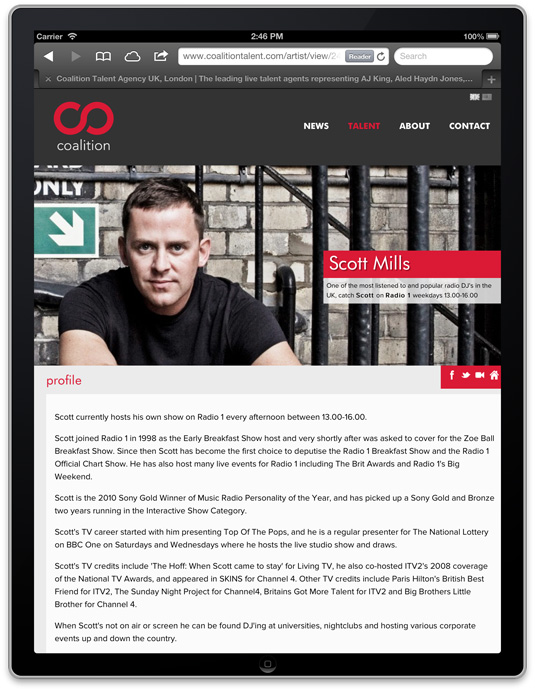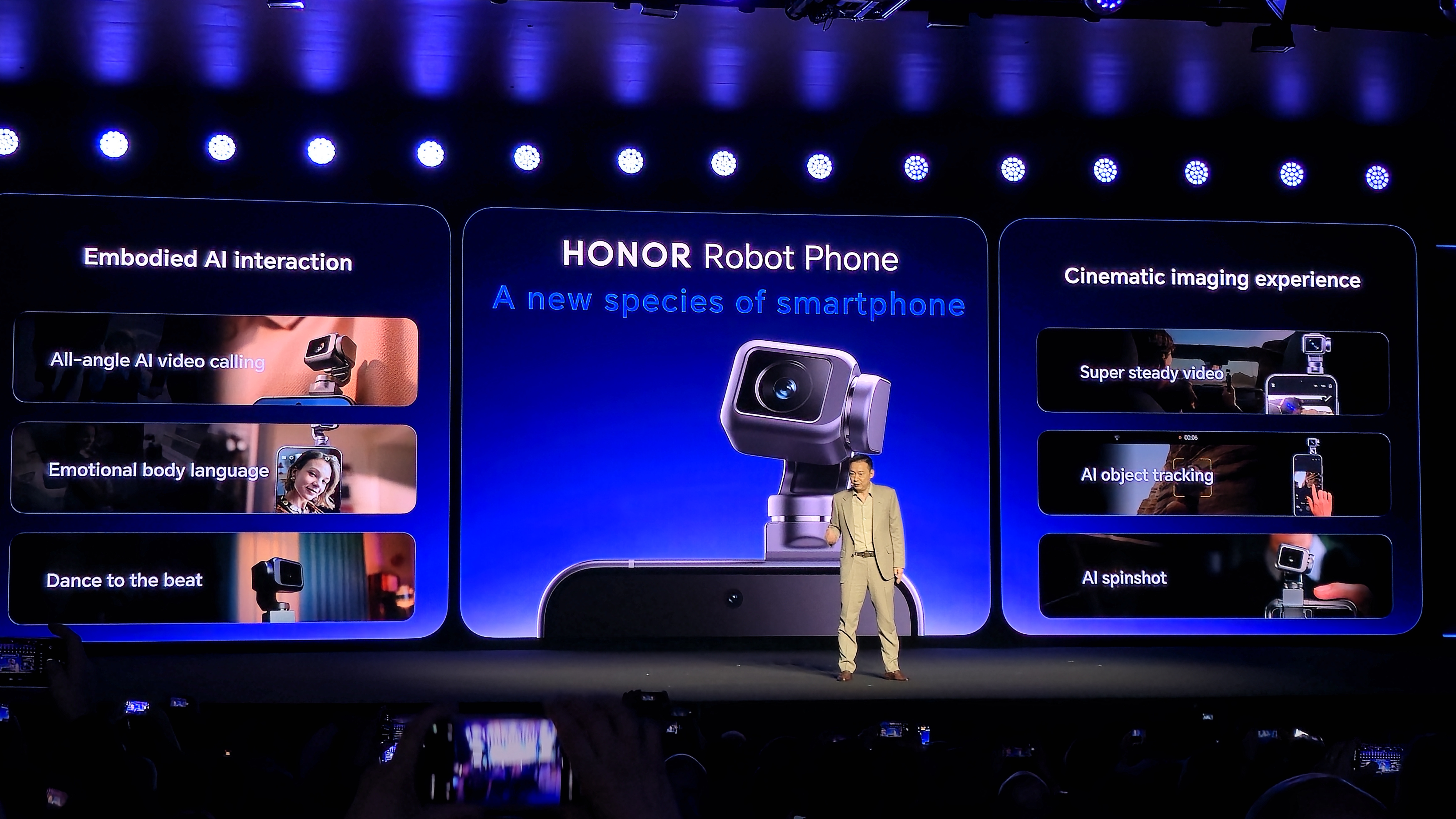Why doing people favours can win you more freelance work
You don't have to bill for every little thing, says Sam Piggott. The odd favour can send your career flying.
Sign up to Creative Bloq's daily newsletter, which brings you the latest news and inspiration from the worlds of art, design and technology.
You are now subscribed
Your newsletter sign-up was successful
Want to add more newsletters?

I never thought I'd ever be able to hack being a full-time freelancer. Doing your own accounts, chasing invoices, contracts, legalities, the elusive concept of quoting for a job - and that's all assuming you actually had work to quote for.
Fresh out of university, I worked full-time at a desk in a small corporate production company. One of my colleagues was an ex-freelancer, and even the thought of it terrified me. I had this negative stigma that freelancers were essentially just lazy people - people who couldn't get full-time jobs, so they just did odd bits as and when it suited them between Lost marathons.
The important of saying yes
Mining for details one day, I inquired: "So... how did you get your work?" He paused for a second, glanced at the ceiling, deep in thought; then looked back at me with a shrug and said: "I dunno. It's weird; I just said 'yes' a lot back then."
Fast-forward half a year: I was working on an entry-level contract, my first real 'freelance gig' in an office in Central London. I'd got to know a few of the full-time employees there, and striking up conversation in the kitchen whilst waiting for the kettle to boil, they understood that I was a bit of a 'renaissance man'; not just the quite web designer, but a dab hand in video editing and shooting - after all, seeing as I'd done an entire university course in the subject, why wouldn't I be?

Word got around pretty quick, I soon discovered, as the company director tapped me on the shoulder one afternoon. One of his close friends was looking for a new video camera, but wasn't quite sure which one to get. "This one, perhaps?" - pulling up Google Images, he made a quick search and pointed at a particular camera on my screen - "But this one has a flip screen...isn't that better?"
Helping out
I smiled and shook my head, then replied with my best non-jargon-filled response that I could manage. I must have failed to produce a simple enough answer, as then came the question: "Could you drop him a quick email with your thoughts?"
Immediately, I was hesitant. Should I be billing for this? After all, I had been hired as a web designer, not a video consultant... what would an accomplished, successful freelancer do, presented with this question?
Sign up to Creative Bloq's daily newsletter, which brings you the latest news and inspiration from the worlds of art, design and technology.
I didn't want to seem money-grabbing and put him off, in case it was just a favour, as that wasn't part of my personality. I recalled my friend's advice once again back at the production company. With a smile, I obliged.
Making it personal
An email led to a phone call. A phone call lead to a meet-up. The meet-up led to a day trip around London's photography stores. Had I had billed for all of this, I could have easily racked up a two- or three-day invoice - but I pushed that to the back of my mind.

My inner businessman, educated on the blogs of experienced freelancers and entrepreneurial literature, screamed that I should be working on other projects, or hunting down my next client - or even mentioning invoicing for this time; but I ignored it.
I went with my gut, and what felt natural; I helped out as much as I could, just as I would a friend, or relative. This felt personal.
Starting a relationship
After a few visits out to test-drive a couple of the choices we'd narrowed down, I received a pleasant email - he'd bought the camera, and it was exactly what he was looking for.
I felt great. I sent a jolly "you're welcome, any time" email back, and continued my quest for my next contract. The very next day, I got a call: "The company I work for are looking at buying a whole new video studio. I'm going to hire you to spec it out for us - is that alright? When are you available?" I was stunned.

Over the next year-and-a-half, that contract lead to another, which led to many more. That company is now my longest-standing client, providing me with almost half of last year's income.
Being human
When asked for a favour with no promise of immediate financial or personal gain, saying no is easy. I'm still young in my freelance career (two years this July) but one lesson I wish I'd learned earlier is that whilst hitting deadlines is important, it shouldn't mean that you have to skip out on simple human nature - and helping somebody out as and when you can.
As a working freelancer, you have a desired skillset; it's fantastic to get paid for using that, but remember that not everybody has five-figure budgets. Maybe it's just a relative's budding hobby; they've always wanted to know how to edit this holiday video of them in the Bahamas, can you sit down with them for an afternoon and show them? Perhaps a friend who needs a new website to show off their super-awesome motorbike collection.
Can you build them a simple one-page site with some images if you've got time this weekend? Own that favour, and have fun with it. Heck, try out that new HTML5 <video> element you've been itching to use; maybe a new templating system, or JavaScript library.
After all, you never know where it might lead.
Words: Sam Piggott
Sam Piggott is a freelance web designer and video producer. Follow him on Twitter at @Sam_Piggott.

The Creative Bloq team is made up of a group of art and design enthusiasts, and has changed and evolved since Creative Bloq began back in 2012. The current website team consists of eight full-time members of staff: Editor Georgia Coggan, Deputy Editor Rosie Hilder, Ecommerce Editor Beren Neale, Senior News Editor Daniel Piper, Editor, Digital Art and 3D Ian Dean, Tech Reviews Editor Erlingur Einarsson, Ecommerce Writer Beth Nicholls and Staff Writer Natalie Fear, as well as a roster of freelancers from around the world. The ImagineFX magazine team also pitch in, ensuring that content from leading digital art publication ImagineFX is represented on Creative Bloq.
